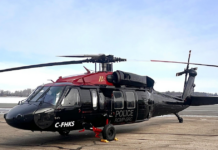A new report from the Canada Border Services Agency (CBSA) revealed that over 68,000 guns have been seized by federal agents in cross-border mail from 2018-2022.
“Ninety-six per cent of Canada Border Services Agency firearm seizures, which includes parts, magazines and ammunition, occurred in the postal mode,” reads the report.
Between 2018 and 2022, agents seized 71,003 firearms with 68,338 of those being contraband in cross-border mail, according to the Toronto Sun.
Currently, only postal inspectors are permitted to intercept suspicious packages, not police under the Canada Post Corporation Act, however that may soon change.
Senate bill S-256, if passed, would allow police to intercept suspicious packages in transit.
“Traffickers have spread the word that there is much less risk of their packages being intercepted if they send them through Canada Post rather than through any other private courier company such as FedEx, UPS, Purolator or DHL,” said Sen. Claude Carignan.
“This bill will finally close the loophole that traffickers have been exploiting in the Canada Post Corporation Act. This loophole, which only applies to items sent by Canada Post and not through other courier companies, means that traffickers prefer to do business with Canada Post,” said Carignan, who sponsored the bill.
Many gun rights activists are not surprised to learn that the illegal guns sales aren’t coming from within Canada.
“I think I could speak for many gun owners by asking MPs and Senators how the Liberals’ bill C-21 addresses any of these obvious concerns,” Rod Giltaca, CEO and executive director of the Canadian Coalition for Firearm Rights, told True North.
Bill C-21 is now in its third reading in the Senate and aims to make stricter laws around what firearms will be prohibited and to introduce stronger penalties for those caught.
Gun rights activists have said the bill is too heavy-handed with law-abiding gun owners and doesn’t take seriously enough gun smuggling, which is widely regarded by law enforcement as being the leading source of illegal firearms.
“To be honest, it’s exceedingly difficult to see verifiable information like this floating around in media and law enforcement while the government, including the Senate, passes legislation that has virtually no effect on the true sources of crime guns in Canada,” said Giltaca.
Cabinet members admitted that they do not know how many guns are smuggled into Canada through the use of road, rail or by marine freight.
According to the report, detector dogs cost $7.7 million per year but track few actual smuggled firearms.
The dog teams are primarily most effective at frightening smugglers rather than actually catching them.
“If the liberal NDP government genuinely cared about keeping firearms out of the hands of criminals, they would be crafting legislation that directly addresses the sources in this story. To this government, legislation is a political tool to be used against those unlikely to vote for them. All while leaving Canadians longing for a safer Canada,” said Giltaca.





















